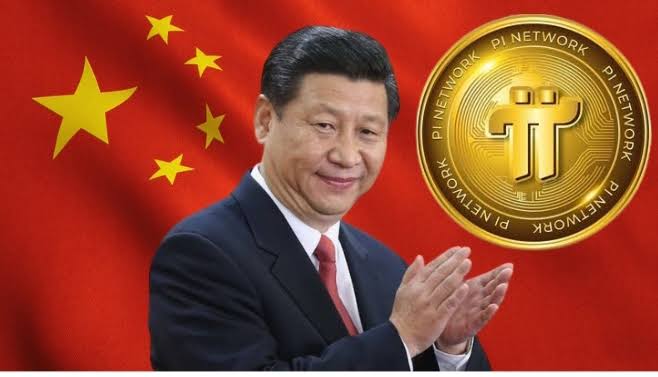Renowned economic expert and controversial figure, Christopher King, has once again taken to social media to express doubts about the future of Pi Network in China. In a recent tweet, King highlighted the formidable challenges posed by China’s anti-fraud and public security agencies, casting a shadow of uncertainty over the network’s chances of survival in the Chinese market. He also emphasized the linguistic and regulatory obstacles faced by the platform, stating that comprehension of Mandarin would be necessary to fully grasp the extent of China’s rigorous crackdown on Pi scammers. King’s tweet raises valid worries about the capability of Pi Network to navigate the challenging landscape of China’s regulatory environment and protect its users from fraudulent activities. As Pi Network continues to gain traction globally, the implications of King’s statement on the platform’s potential in China are now being hotly debated.
The specific obstacles that may hinder Pi Network’s progress in China are as follows:
You need to know Mandarin to understand how hard China's anti-fraud and public security agencies are and will be in cracking down on Pi scammers.
This is just the beginning.
I don't think Pi has any chance of surviving in China. pic.twitter.com/lc3UWvVTiI
— 金博士频道 GOLDENCHANNEL π (@christopherjing) July 11, 2023
1. Ban on Initial Coin Offerings (ICOs): In 2017, China banned ICOs due to concerns of scams, market manipulation, and illegal fundraising. This measure aimed to protect investors and maintain financial stability.
2. Prohibition on Crypto Exchanges: China cracked down on cryptocurrency exchanges, leading to the closure of major trading platforms within the country. The government expressed concerns over speculative trading, money laundering, and the potential for ransomware attacks.
3. Restrictions on Local Cryptocurrency Activities: Chinese authorities have imposed stringent restrictions on local cryptocurrency activities, prohibiting financial institutions from engaging in cryptocurrency transactions or providing related services.
4. Crackdown on Mining Operations: China has taken steps to limit cryptocurrency mining activities, particularly due to energy consumption concerns and environmental impact. Mining operations have faced increased scrutiny and regulatory pressure.
5. Monitoring and Surveillance: Chinese authorities actively monitor and surveil cryptocurrency-related activities to prevent illicit transactions, illegal fundraising, and potential financial risks. This involves stringent oversight by regulatory bodies to maintain control over the cryptocurrency market.
China has gained a reputation for having a stringent stance against cryptocurrency-related activities, including potential scams. Its anti-fraud and public security agencies have been robust in their efforts to crack down on fraudulent schemes within the country. This presents a significant challenge for Pi Network, as the platform seeks to establish a presence in the burgeoning Chinese market.
With Christopher King’s assertion that Pi Network may struggle to survive in China, Pi enthusiasts and critics alike are left contemplating the potential ramifications of such a statement. As a growing number of users join the platform across the globe, the Chinese market represents an influential opportunity for expansion. However, the regulatory landscape and language barrier, as highlighted by King, may prove to be significant hurdles for Pi Network’s success in China.
Pi Network and its team face the arduous task of addressing the concerns raised by Christopher King and ensuring that the necessary measures are in place to adapt to China’s regulatory ecosystem. By fostering constructive dialogue with regulatory authorities, enhancing their anti-fraud mechanisms, and exploring potential partnerships with established entities in the region, Pi Network may find a way to create a viable presence in China.












